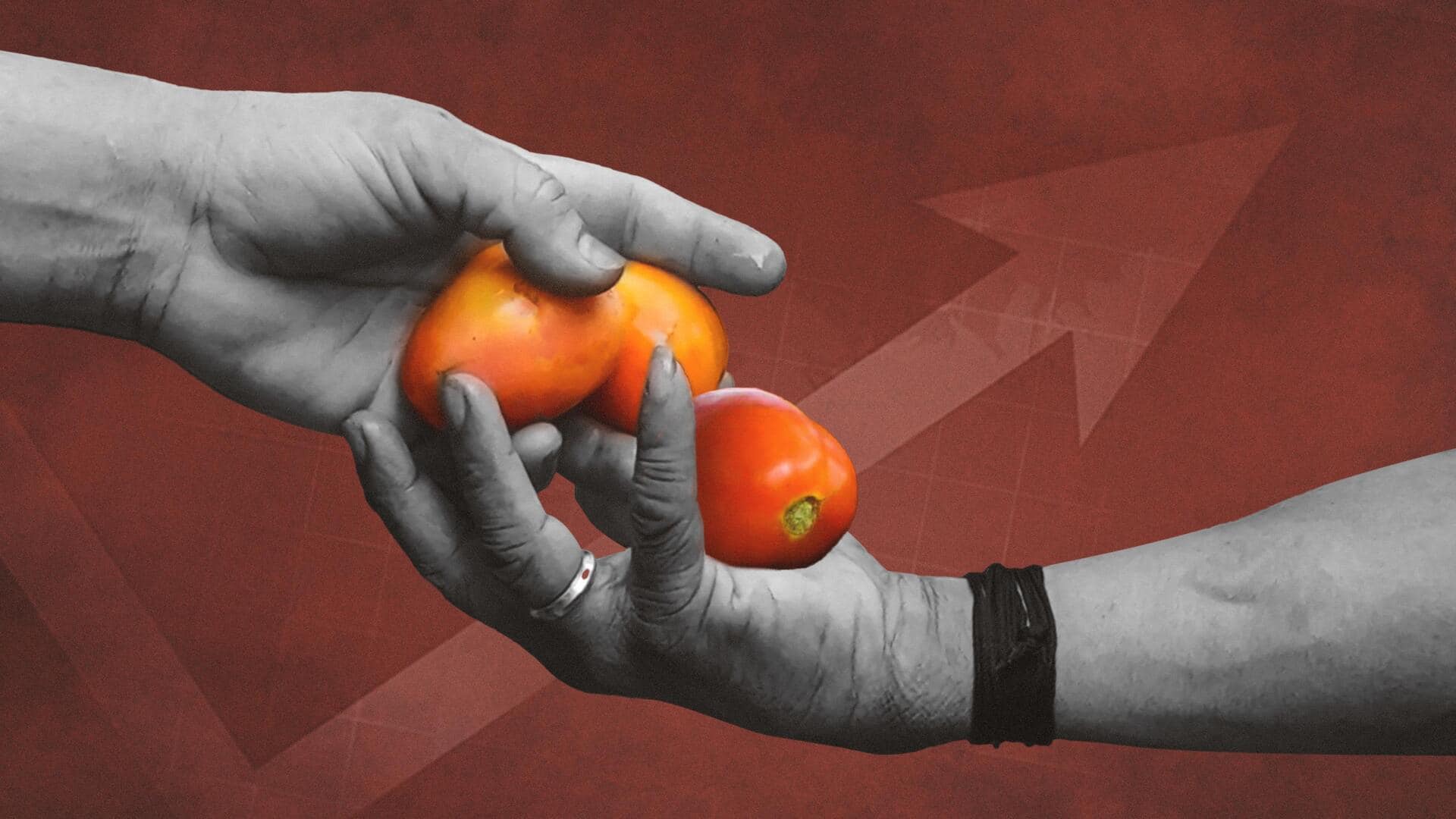
Price hike: Government begins selling tomatoes at Rs. 90/kg
What's the story
In some relief to the common people, the government started the sale of tomatoes at a discounted price of Rs. 90 per kg in Delhi-NCR, Lucknow, Patna, and other identified urban centers from Friday.
The National Cooperative Consumers' Federation of India (NCCF) will also sell tomatoes using mobile vans in Kanpur, Jaipur, and some other cities during the weekend, officials said.
Context
Why does this story matter?
Tomato prices spiraled within weeks from Rs. 10 per kg in May to over Rs. 200 per kg in June and July owing to supply disruption and low production due to prolonged heatwave conditions and delayed rainfall.
Following this, the government directed the National Agricultural Cooperative Marketing Federation (NAFED) and the NCCF to procure tomatoes from producing centers and distribute them at retail outlets.
Delhi
30 mobile vans to sell 17,000kg tomatoes in Delhi
In Delhi, the NCCF started the sale in all 11 districts through 30 mobile vans.
Officials said the NCCF will sell around 17,000kg of tomatoes on Friday and nearly 20,000kg on Saturday, and the quantity will be increased to 40,000kg as the sale picks up.
The NAFED, on the other hand, will start selling tomatoes in other cities in the next couple of days.
Twitter Post
Price of other kitchen staples also rising
Freshly procured tomatoes arrive in Delhi, to be sold at Rs 90/kg starting today
— ANI Digital (@ani_digital) July 14, 2023
Read @ANI Story | https://t.co/f4dc1n1ojb#Tomato #Delhi #Vegetables #TomatoPrices #NAFED #NCCF #Inflation #FoodInflation pic.twitter.com/YojwQzkpHG
Statement
Centre subsidized tomato by 30%, will absorb losses
NCCF Managing Director Anice Joseph Chandra said the tomatoes are being procured at Rs. 120-130 per kg, while the selling price has been fixed at Rs. 90 per kg as the central government will bear the losses.
Consumer Affairs Secretary Rohit Kumar Singh added that the Centre is subsidizing the tomatoes by over 30% from the prevailing market rate.
Production
NCCF in talks with Mother Dairy
Moreover, the NCCF is reportedly in talks with Mother Dairy, owned by the government, to sell tomatoes at discounted rates in Delhi through the latter's Safal retail outlets.
The tomatoes are being procured mostly from the southern and western regions, which account for 56-58% of the country's total tomato production.
The prices are expected to stabilize with the arrival of fresh produce.
Reason
Government blamed lean production season for price hike
Notably, tomato production is less in the period of July-August and October-November, according to the Department of Consumer Affairs.
July coinciding with the monsoon season further adds to the challenges related to distribution and increased transit losses, adding to the price rise, it said.
It added that new crop arrivals are expected soon from Nashik district, Narayangaon, the Aurangabad belt, and Madhya Pradesh.